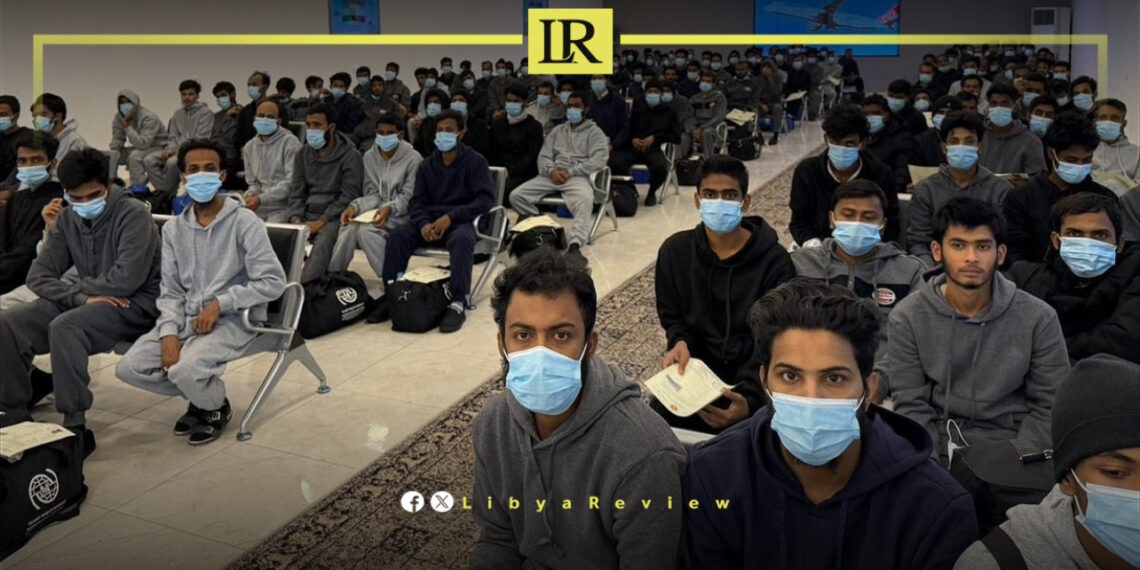The Libyan Anti-Illegal Immigration Authority has confirmed that its Benghazi branch carried out two consecutive deportation operations, resulting in the repatriation of 322 undocumented migrants.
According to the authority, the first operation involved 163 Bangladeshi nationals, including individuals suffering from infectious diseases and others with security restrictions. The deportation was conducted in cooperation with the International Organization for Migration (IOM), which facilitated logistical and humanitarian support.
The second operation included 159 migrants from Chad, also involving cases of infectious diseases as well as individuals subject to formal expulsion orders from Libyan territory.
Libya continues to be a key transit country for thousands of migrants attempting to cross the Mediterranean toward Europe. Authorities have increased coordination with international organizations to manage deportations, citing both security concerns and public health measures.
The Anti-Illegal Immigration Authority stressed its commitment to carrying out deportations in accordance with Libyan law and international cooperation frameworks.
Libya has been in chaos since a NATO-backed uprising toppled longtime leader Muammar Gaddafi in 2011. The county has for years been split between rival administrations.
Libya’s economy, heavily reliant on oil, has suffered due to the ongoing conflict. The instability has led to fluctuations in oil production and prices, impacting the global oil market and Libya’s economy.
The conflict has led to a significant humanitarian crisis in Libya, with thousands of people killed, and many more displaced. Migrants and refugees using Libya as a transit point to Europe have also faced dire conditions.
The planned elections for December 2021 were delayed due to disagreements over election laws and the eligibility of certain candidates. This delay has raised concerns about the feasibility of a peaceful political transition.
Despite the ceasefire, security remains a significant concern with sporadic fighting and the presence of mercenaries and foreign fighters. The unification of the military and the removal of foreign forces are crucial challenges.


